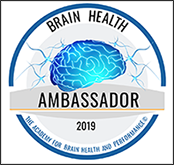 The haunting tone of her voice lingered in the air. “Why is there a pandemic?”
The haunting tone of her voice lingered in the air. “Why is there a pandemic?”
Hannah, an essential hospital employee, sees the physical and emotional fallout of the pandemic daily. This question sticks in her mind like the spinning wait cursor on a computer screen.
Many of us ask the same question and many more. Why is there a pandemic? Why do so many good people have to suffer? How could a benevolent Source of all allow something so horrific to happen to good people? Ultimately, why is there suffering?
We’re all suffering now. Life as we knew it has been uprooted, so it’s no wonder if you’re feeling like Hannah: overwhelmed, anxious, or depressed. We all are being triggered by a life that is changing faster than the speed of light. Christine Day says, “Our ego-minds are being upended.”
Truly, there is no one-size-fits-all answer. Truth comes in mysterious ways and in individual forms for each of us.
So instead of giving Hannah an answer that didn’t fit, I asked, “What have you learned from this?”
“Well, I know that I keep forcing myself to get things done, and I can’t help doing that,” she answered.
Next, I asked her, “What happens when you do this?” Without hesitation, Hannah said, “I end up overeating, and then I have a hard time falling asleep. Then I have a hard time waking up and am tired all day long.
Hannah admitted, “When I was shut down from doing as much as usual due to the pandemic, I felt happier.”
For many people, especially before the COVID-19 outbreak, they only way they know how to keep up with the game of life is to try to jump up in the morning and get as much done as possible at work, at home, for friends and family, and themselves too, until it’s late and their body shuts down.
When You Do Less Your Brain Works Better
Jennifer McCartney’s new book, The Joy of Doing Just Enough, sounds an alarm about this ethic: “The idea that we need to be constantly productive and operating at 100 percent is just some capitalist bullshit we’ve been conditioned to believe in by society.”
Neuroimaging studies back her up. Our brain functions measurably better when it isn’t forced to get things done from dawn till dusk. When Hannah wasn’t “doing” as much, she ate better, slept better, and lived happier.
We’re like a machine that, when it is forced to work too hard, gets overheated, and eventually shuts down. When you drive your brain too hard, your brain functions unravel. That’s when you get brain fog, make poor decisions, and can’t regulate your emotions. When you force yourself to get more done, you’re less productive.
Now that COVID-19 has been amplified by civil unrest, our psyche is suffering even more. Since our world is opening again, we have the choice of whether or not to re-engage in the relentless cultural drive for achievement. Instead, do less and enjoy more. While the nature of Infinite Source is mysterious, the nature of our brains, and our hearts, are becoming more tangible due to medical imaging. No matter how much you try to power through, neuroscience has learned that doing so usually leads to diminishing returns.
 We are in a crisis. In these challenging times, it’s uber important to spend time doing what brings peace to your heart. So, take that walk. Plant your garden. Talk to your neighbor. The funny thing is, you’ll find you get more done when you live doing less. See for yourself if you have the same results as Hannah, that you eat, sleep, and live happier.
We are in a crisis. In these challenging times, it’s uber important to spend time doing what brings peace to your heart. So, take that walk. Plant your garden. Talk to your neighbor. The funny thing is, you’ll find you get more done when you live doing less. See for yourself if you have the same results as Hannah, that you eat, sleep, and live happier.
This crisis shall pass. You may or may not find an answer to “why,” but you can abide in the knowledge that this pandemic challenge will pass. The answer to “why” will come someday. The question for the present is, what can you do to reduce the suffering and become a channel of peace during these traumatic times? Do less and you will be more.

